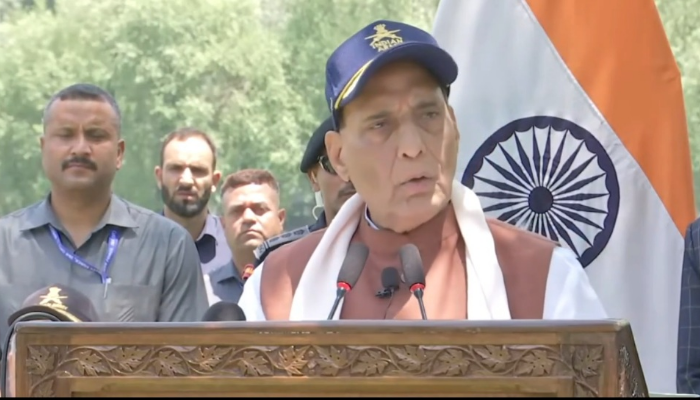Apple Reaffirms India Manufacturing Plans Amid Trump Criticism

Apple has reaffirmed its commitment to India as a key production hub.
Apple confirms continued investment in Indian manufacturing despite criticism from US President Donald Trump, citing no changes to its expansion plans.
Apple Stands Firm on India Manufacturing Strategy Despite Trump’s Objections
Apple has reiterated its commitment to expanding manufacturing operations in India, following criticism from United States President Donald Trump over the company’s increasing shift toward production outside the US.
According to Indian government officials cited by local media outlet CNBC-TV18, Apple has “assured the Indian government” that its investment plans in the country remain unchanged. The company’s stance signals business as usual, despite remarks made by Mr Trump opposing Apple's production expansion in India.
Trump Questions Apple’s Global Strategy
At a recent business event in Doha, Qatar, Donald Trump claimed he had personally raised the issue with Apple Chief Executive Tim Cook. “I said to him, my friend, I am treating you very good… but now I hear you are building all over India. I don’t want you building in India,” the president said.
Mr Trump added that India had offered Apple highly favourable trade terms, including “literally no tariffs,” but insisted that the company should prioritise manufacturing within the United States. “We are not interested in you building in India… We want you to build here [in the US],” he told attendees at the event, according to multiple reports.
Despite these comments, Apple executives reportedly moved quickly to reaffirm the company’s long-term investment outlook in India.
India’s Role in Apple’s Global Supply Chain Grows
India has become an increasingly important part of Apple’s global supply network. As of early 2025, the country produces approximately 15 per cent of the company’s global iPhone output. Key Apple suppliers—Foxconn, Tata Electronics, and Pegatron—have expanded operations significantly, supported by India’s production-linked incentive (PLI) scheme.
Foxconn has also begun manufacturing AirPods in the southern state of Telangana, primarily for export. In March 2025 alone, India shipped 3.1 million iPhones, the vast majority of which were destined for the United States. According to trade data, 97.6 per cent of Apple’s Indian exports that month were shipped to the US, likely in a bid to mitigate potential tariff risks.
Apple Chief Executive Tim Cook has previously indicated that a significant portion of iPhones sold in the United States would increasingly originate from Indian facilities, while production for other international markets would continue to be centred in China.
India’s Minister for Electronics and Information Technology, Ashwini Vaishnaw, announced that iPhones worth ₹1.5 lakh crore (approximately $18 billion) were exported from India during the 2025 financial year. The growth of Apple’s ecosystem in the country has also created around 200,000 jobs, according to government estimates.
Industry Leaders Emphasise Strategic Focus
India’s electronics sector remains optimistic despite the controversy. Rajoo Goel, Secretary General of the Electronic Industries Association of India (ELCINA), described Trump’s remarks as unlikely to have a lasting impact.
“It may slow things down a bit, but I really don’t think it is going to impact India that much. We are still doing a very small share of the global market for Apple,” Mr Goel told CNBC-TV18. He added that India is on “a very strong footing” and urged stakeholders not to be discouraged. “Let us not get disheartened by this… I’m sure Donald Trump might change his stance,” he said.
Mr Goel also stressed the importance of moving further up the value chain by manufacturing more electronic components domestically. He highlighted India’s new electronic component manufacturing scheme as a step in that direction.
Context: The Global Stakes of Tech Manufacturing
Apple’s dual production strategy reflects the broader dynamics of global trade and geopolitics. While the company has pledged to increase its US-based manufacturing, including new investments in chip and component plants, its reliance on Asia—especially India and China—remains integral for cost efficiency and supply chain resilience.
India, for its part, has sought to attract major global manufacturers through initiatives like the PLI scheme, offering financial incentives to companies that scale up local production. Apple’s expanding footprint is widely seen as a flagship success for India’s "Make in India" programme.
Though Donald Trump is no longer in office, his remarks continue to influence the political discourse on domestic manufacturing in the US. With a growing election focus on bringing jobs back to America, companies like Apple may face renewed scrutiny over their global operations.
However, for now, Apple appears intent on balancing both priorities—strengthening its manufacturing base in India while responding to US calls for increased domestic production.

India Revokes Celebi Aviation Security Clearance Amid Turkey-Pakistan Ties
India cancels security clearance of Turkish firm Celebi Aviation over national security concerns following Turkey’s support for Pakistan in Operation Sindoor.
|2025-05-16

Microsoft Layoffs Spark Online Debate Over Job Security in Tech and Government Sectors
Microsoft layoffs reignite debate on private vs government job security, with Indian social media users weighing career stability against high tech salaries.
|2025-05-15

India Urges IAEA Oversight of Pakistan's Nuclear Weapons Amid Tensions
India's Defence Minister Rajnath Singh has called on the IAEA to monitor Pakistan's nuclear weapons, citing concerns over safety and responsible handling.
|2025-05-15

Delhi Capitals Face Backlash Over Mustafizur Rahman Signing for IPL 2025
Delhi Capitals’ replacement of Jake Fraser-McGurk with Bangladesh's Mustafizur Rahman sparks #BoycottDelhiCapitals trend ahead of IPL 2025 resumption.
|2025-05-15

India May Cut Tariffs on 90% of US Goods if Deal is Reciprocal: GTRI
New Delhi could drop duties on 90% of US exports if Washington agrees to mutual tariff cuts, says Global Trade Research Initiative.
|2025-05-15




